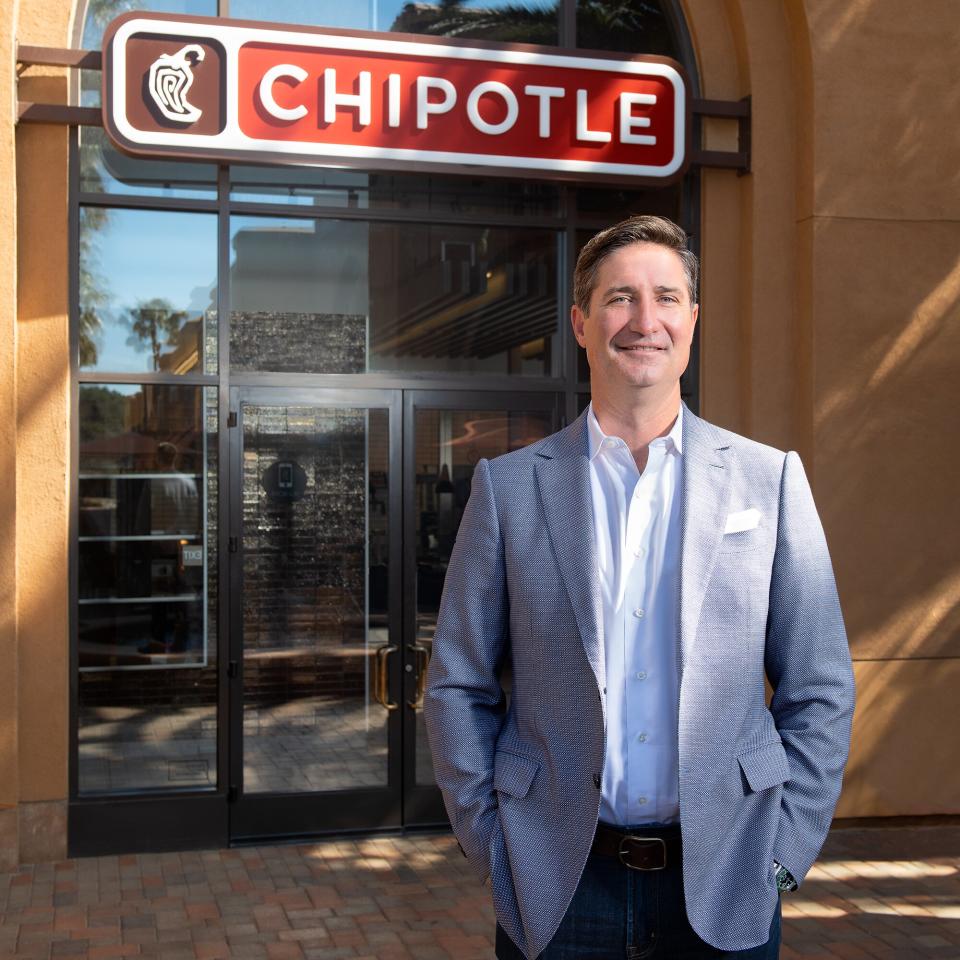Chipotle Set New Standards for Sustainability on a Massive Scale—Here's How
When Chipotle took off 20 years ago, opening almost 500 locations in just five years, the company's success didn't just reflect a newfound passion for burritos, but also customers' hunger for sustainably sourced quick-service food. Founder Steve Ells, who ditched his high-end cooking aspirations after he opened the first Chipotle location in Denver in 1993, made the company's commitment to ingredients like Niman Ranch's antibiotic-free pork a selling point. (Niman Ranch Pork's founding farmer, Paul Willis, was among our 2020 American Food Heroes.)
Chipotle's success has inspired a host of up-and-comers to adopt its ideology and serve fresher, better fast-casual fare. Rapidly growing chains like Sweetgreen, Veggie Grill and Dig now advertise their local produce, sustainably raised meats and healthful dishes.
Under the aegis of Brian Niccol, who joined Chipotle in 2018, the company is pushing its sustainability goals even farther forward—and challenging the industry to join it. "The way we're going to continue to lead in this space is by working with the supply chain and the partners that grow or raise the ingredients we use," Niccol says.

KREMER JOHNSON
One of Chipotle's new initiatives is to help young farmers. A third of America's growers and ranchers are aging out of the business, yet those wanting to step in and take over for them struggle with steep startup costs—primarily land and equipment. In May 2020, the company partnered with the National Young Farmers Coalition to give 50 aspiring farmers $5,000 each in seed grants and announced it will contribute $5 million in total over the next five years. Chipotle also committed to buying 37 million pounds of produce from smaller local farms in 2021, a bump from 31 million the year before.
It upped its sustainability game, as well—adding a new feature to the online menu called the Real Foodprint tracker, which allows customers to see the impact of their order on factors like carbon emissions, soil health and water saved. (Chipotle enlisted Bill Nye to do a TikTok video explaining how it works.) This comes at a time when transparency is more important to eaters than ever: according to a recent nationwide poll, 80% of consumers say sustainability is a major factor when deciding what food or beverage to buy—and more than 50% report being more concerned about sustainability than a year ago.
More quietly, last year Chipotle increased the percentage of waste it diverts from landfills to 51%—up from 37% in 2016—thanks to changes in how it recycles and packages products, among other strategies. It also expanded the number of locations that compost to 29% of its 2,800-some restaurants. Given Chipotle's scale, these moves have the potential to make a big environmental impact. In March, the company announced it will tie part of its executive bonuses to whether Chipotle meets even more stringent sustainability goals each year.
All that during one of the most chaotic years the restaurant industry has ever faced. "We never stepped backward, despite what was going on with COVID," Niccol says. "I think that's a testament to the culture and values that we have."

